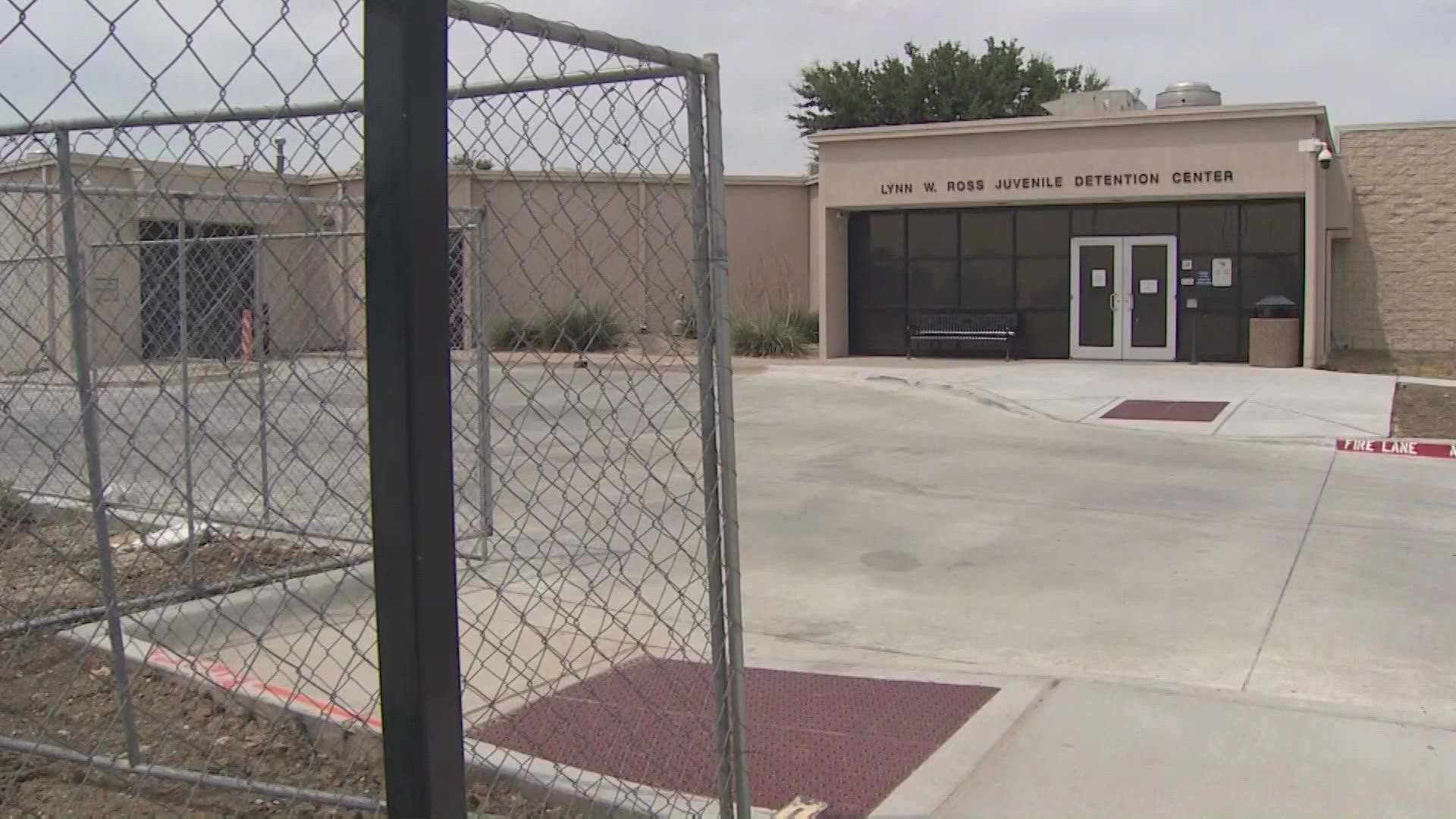FORT WORTH, Texas — The man behind a report about overcrowding at the Tarrant County Juvenile Detention Center is also sharing what bothers him the most about the facility, a sentiment shared among others, as members of the Tarrant County Commissioners Board are calling for immediate changes.
The commissioner recruited Carey Cockerell to conduct an audit of the juvenile detention based on his expertise and years of experience working for Tarrant County.
"I went into it not knowing much except that detention had increased," said Cockerell.
Cockerell's report on the Tarrant County Juvenile Detention Center overcrowding led to county commissioners brainstorming on how to fix the problem as soon as possible.
His findings were based on hard data such as hearing dates, delayed or canceled court appearances, intake numbers, and stats on juvenile ages, race, detention days, and court records.
After the commissioner's court, Cockerell shared his biggest concern with some of the results of the report.
"I think the biggest concern is the numbers in detention and the practices that lead to the increased numbers in detention," said Cockerell.
Judge B. Glen Whitley and colleagues talked about action plans during the commissioner's court Tuesday. The commissioners agreed that the goal is to rehab children in the juvenile justice system instead of creating a path for them to matriculate into adult court. The report reveals detained juveniles waiting months for a hearing, staff sharing the term ghost judges to describe judges missing from the court, and pretrials taking almost a year. Insisting it's not a blame game, Judge Whitley argues juvenile detention needs fixing and needs fixing fast.
"It's clearly broken historically; we've had a long census in our juvenile detention center because we believed in taking care of our juveniles," said Whitley.
The report also uncovered racial inequities showing more than 90 percent of juvenile detainees are young people of color. Commissioner Roy Charles Brooks called it a systemic racism issue. He repeatedly express his concerns about the racial makeup of the young people detained in the center.
"If it walks like a duck and quacks like a duck," said Brooks, "We need to do something quickly, to turn this thing around."
Whitley says the District Board of District Judges must appoint additional judges to tackle the backlog.
The Commissioner's Court controls the budget for the entire county and therefore is responsible for allocating the funding for the court staff including the salaries and operational expenses.
Whitley made it clear that defunding the Juvenile Detention Center this upcoming September during budget time is not out of the question.
"We would say we are no longer funding those courts," said Whitley.
The Commission Chair explained it would not be out of the question to direct the juvenile court money to a different pot, hold it and then fund it as corrections are made down the road.
Whitley plans to address the issues, even more, when he meets with the judge's board on Aug. 17.

